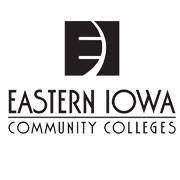Muscatine Community College


Selected Programs at Muscatine Community College
Explore programs at Muscatine Community College. This list is curated by SkillPointe to match skills-based industries and careers that don't require a four-year degree.
Browse Training Programs (24)
Electrician
Basic Electricity Certificate
This certificate prepares an entry-level technician with fundamental concepts enabling the person to work with an experienced technician or engineer...
View Program
Electrical Systems Diploma
This diploma provides individuals with skills and expertise to integrate the knowledge gained in the Basic Electricity and Basic Electronics...
View Program
Dental Hygienist
Dental Hygiene, A.A.S
Through a unique partnership with Carl Sandburg College, located in Galesburg, Illinois, students can complete some of their courses at Clinton...
View Program
Nurse - LPN / LVN
Practical Nursing Diploma
The curriculum of Eastern Iowa Community College’s Practical Nurse (PN) program of study prepares students to care for the sick, injured, convalescent...
View Program
Respiratory Therapist
Respiratory Care, A.A.S
The Respiratory Care program prepares students to be respiratory care practitioners who play a crucial role within the health care team. Working...
View Program
Vet Technician
Veterinary Technician, A.A.S
The Veterinary Technician program prepares students to enter the job market as assistants to veterinarians. New technologies in anesthesia, laboratory...
View Program
Chef and Head Cook
Culinary Arts Certificate
The Culinary Arts Certificate is a short-term, 16 credit award that can be completed in one semester. Classes provide students with the basic skills...
View Program
Culinary Arts Diploma
The Culinary Arts Diploma is a 32 credit award that can be completed in 2 terms. Classes provide students with the basic skills to work as an...
View Program
Culinary Arts, A.A.S
The Culinary Arts AAS is a 67 credit program. This non-apprenticeship program was created for students with little or no experience in the food...
View Program
Data Security Management
Information Technology: Cyberscecurity, A.A.S
Cybersecurity Specialists are responsible for securing and protecting information assets. They are required to preserve information confidentiality...
View Program
Networking for Cybersecurity Diploma
The Networking for Cybersecurity diploma provides students with fundamental skills in planning, installing, and maintaining organizations’ computer...
View Program
Database Administrator
Information Technology: Database, A.A.S
Database Developers create and/or maintain database software components by either developing new applications, maintaining existing ones, or...
View Program
Network and Computer Systems Administrator
Information Technology: Networking, A.A.S
The Information Technology - Networking for Systems and Security AAS award provides students with fundamental skills in planning, installing, and...
View Program
Networking for Systems and Security Certificate
The Networking for Systems and Security certificate provides students with basic skills in computers and networks. Students will learn to troubleshoot...
View Program
Networking for Systems and Security Diploma
he Networking for Systems and Security diploma provides students with fundamental skills in planning, installing, and maintaining organizations’...
View Program
Software Developer
Information Technology: Programming, A.A.S
Computer Programmers typically write code to create software programs used to target specific needs of businesses or individuals using computer...
View Program
Information Technology: Web Development, A.A.S
Web Design and Developers design and create, update and maintain web pages and full websites using web development and scripting languages such as...
View Program
Programming Diploma
Students earning an Information Technology-Programming Diploma will complete the first two terms of the Information Technology-Programming AAS award...
View Program
Electrical and Electronics Engineering Technician
Basic Electronics Certificate
This certificate builds upon the Basic Electricity Certificate allow the person to conduct, analyze, and interpret electronic engineering tasks with...
View Program
Electro-Mechanical Technician
Engineering Technology Electromechanical Diploma
Students successfully completing the Basic Electricity and Basic Electronics Certificates will earn the Engineering Technology Diploma after meeting...
View Program
Engineering Technology: Automation, A.A.S
All students enrolled in the Engineering Technology Associates of Applied Science (AAS) program begin by taking an identical set of courses for the...
View Program
Engineering Technology: Electromechanical, A.A.S
All students enrolled in the Engineering Technology Associates of Applied Science (AAS) program begin by taking an identical set of courses for the...
View Program
EMTs and Paramedics
Emergency Medical Services, A.A.S
The Clinton, Muscatine and Scott Community College Emergency Medical Services (EMS) programs prepare students for successful completion of the Iowa...
View Program
Emergency Medical Technician Certificate
The Clinton, Muscatine and Scott Community College Emergency Medical Technician certificate prepares students for successful completion of the Iowa...
View Program
Browse Earn + Learn Programs (1)
Chef and Head Cook
Muscatine Community College
Address
152 Colorado St
Muscatine, IA 52761
Muscatine, IA 52761
Phone number
563-288-6001